Why did the Ukrainian embassy in Iran initially reject the idea that a missile strike had caused Ukraine International Airlines Flight PS752’s fatal crash on January 8, 2020 near Tehran?
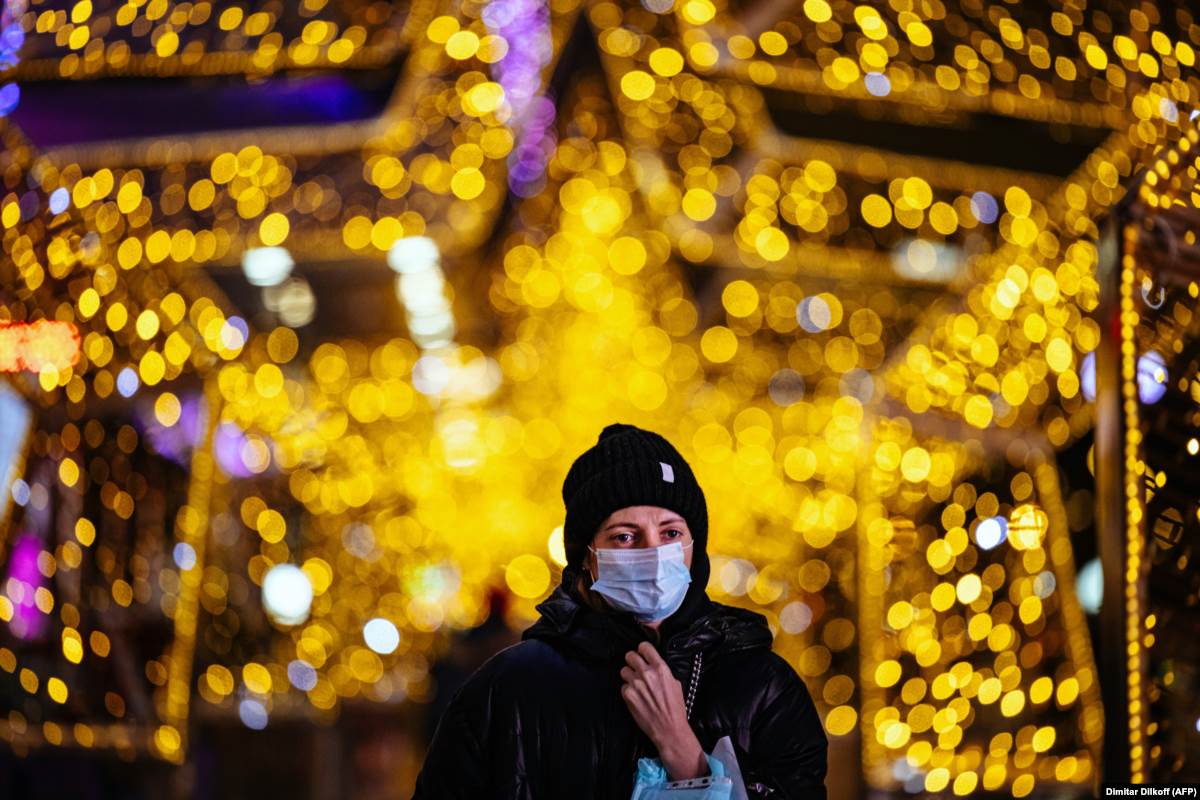
News Quiz: 20 Questions For 2020
It may have seemed like the news in 2020 was all about the COVID-19 pandemic, but, in fact, there was plenty of variety. From protests and war to environmental challenges and social change, Current Time was there.
How much do you know about this year’s major events from Belarus, Russia, Ukraine, Central Asia, and the South Caucasus?
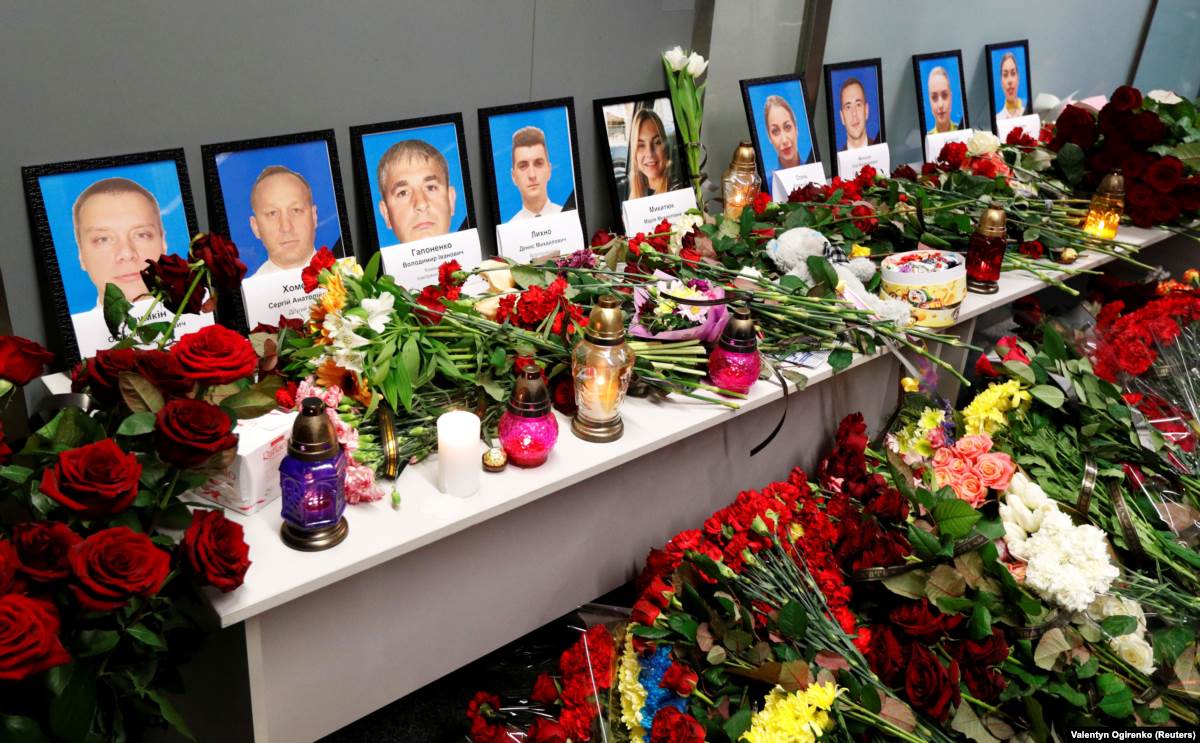
Incorrect. In a January 13, 2020 interview with Current Time, Ukrainian National Security and Defense Council Secretary Oleskiy Danilov stated that the Ukrainian government had known by the morning of January 9 that a missile had caused the plane crash. It told the Tehran embassy to say nothing about this so that Iran would not exclude Ukraine from the investigation into the crash, Danilov said. The attack killed all 176 passengers and crew on board.

Incorrect. In a January 13, 2020 interview with Current Time, Ukrainian National Security and Defense Council Secretary Oleskiy Danilov stated that the Ukrainian government had known by the morning of January 9 that a missile had caused the plane crash. It told the Tehran embassy to say nothing about this so that Iran would not exclude Ukraine from the investigation into the crash, Danilov said. The attack killed all 176 passengers and crew on board.

Correct. In a January 13, 2020 interview with Current Time, Ukrainian National Security and Defense Council Secretary Oleskiy Danilov stated that the Ukrainian government had known by the morning of January 9 that a missile had caused the plane crash. Iran later admitted that it had mistaken the flight for a U.S. cruise missile and fired two missiles at the plane. The attack killed all 176 passengers and crew on board.
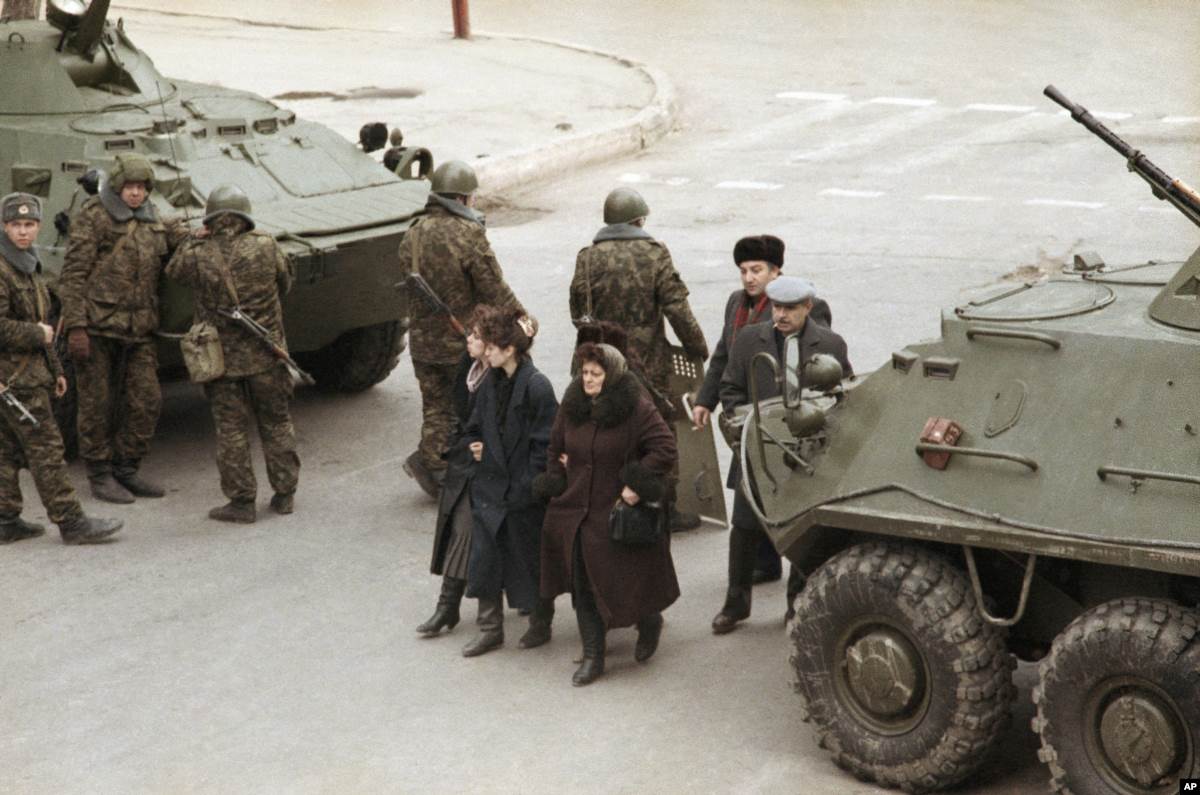
Incorrect. Heydar Aliyev was elected president of Azerbaijan in 1993. On the night of January 19-20, 1990, Soviet army troops arrived in Baku to put down demonstrations against Moscow’s handling of the Nagorno-Karabakh crisis. Known as Black January, the crackdown led to the deaths of an estimated 133-137 people and strengthened desires for independence from the Soviet Union.

Incorrect. The Khojaly massacre occurred in 1991. On the night of January 19-20, 1990, Soviet army troops arrived in Baku to put down demonstrations against Moscow’s handling of the Nagorno-Karabakh crisis. Known as Black January, the crackdown led to the deaths of an estimated 133-137 people and strengthened desires for independence from the Soviet Union.

Correct. Known as Black January, the crackdown led to the deaths of an estimated 133-137 people and strengthened growing desires for independence from the Soviet Union. Azerbaijan eventually declared its independence on August 30, 1991. Its conflict with Armenia over Nagorno-Karabakh continues to this day.
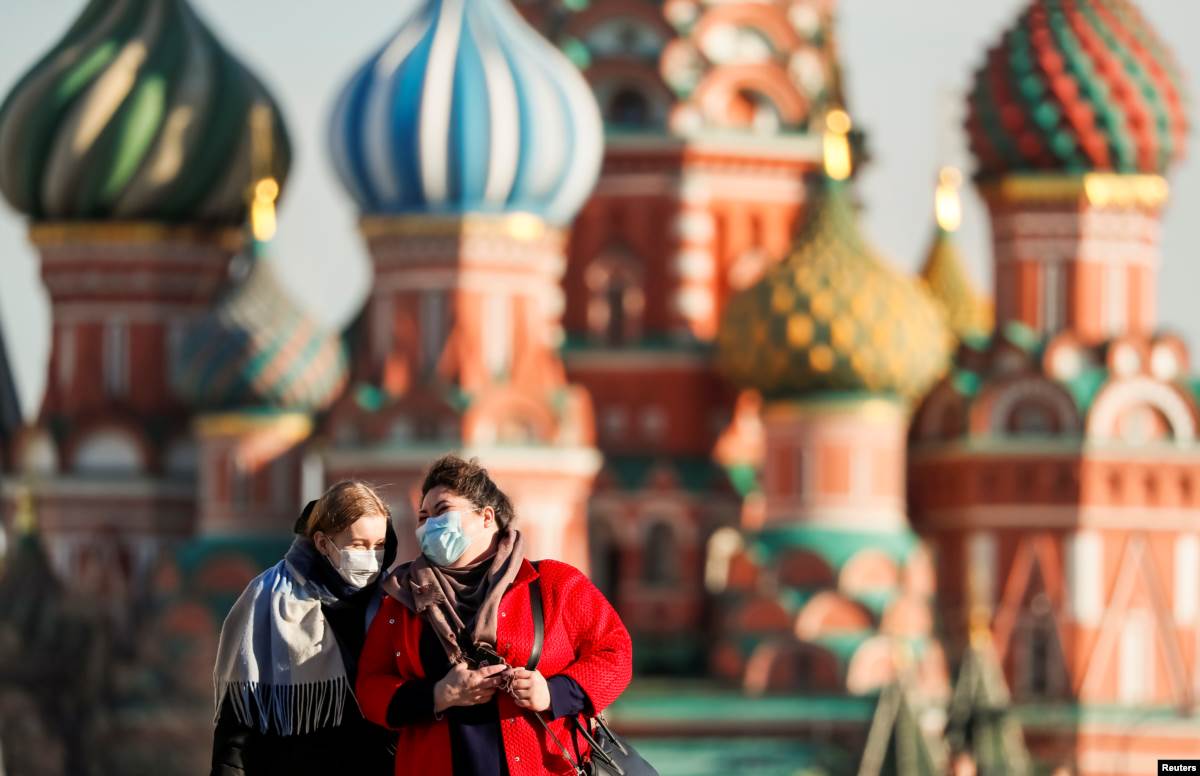
Correct. A representative of consumer-protection agency Roskomnadzor, which was overseeing the COVID-19 response, told Current Time’s Timofei Rozhansky that it was “impossible” to conduct tests throughout the entire country. By early April 2020, however, Russia was officially running up to 37,000 tests per day.

Incorrect. Consumer-protection agency Roskomnadzor, which was overseeing the COVID-19 response, initially restricted tests to those citizens who had recently returned from a coronavirus hot spot. An agency representative told Current Time’s Timofei Rozhansky that it was “impossible” to conduct tests throughout the entire country. By early April 2020, however, Russia was officially running up to 37,000 tests per day.

Incorrect. Consumer-protection agency Roskomnadzor, which was overseeing the COVID-19 response, initially restricted tests to those citizens who had recently returned from a coronavirus hot spot. An agency representative told Current Time’s Timofei Rozhansky that it was “impossible” to conduct tests throughout the entire country. By early April 2020, however, Russia was officially running up to 37,000 tests per day.
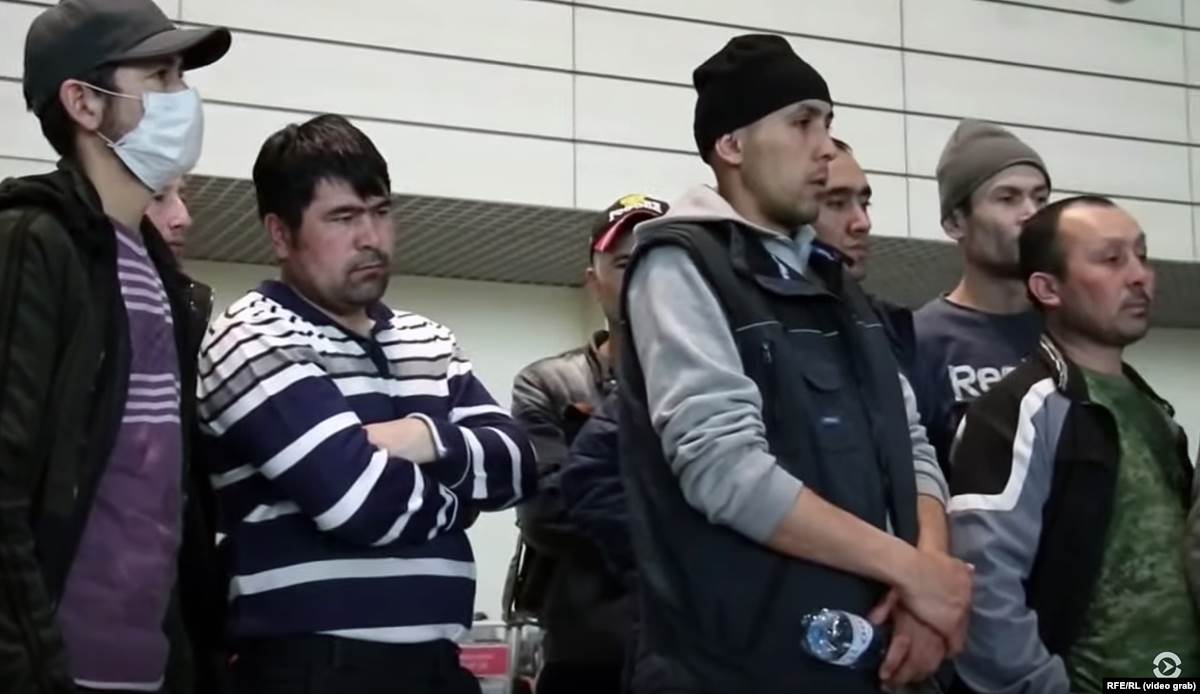
Incorrect. Though thousands of Armenians routinely migrate to Russia for work, the roughly 300 migrants left stranded in Domodedovo were primarily from Tajikistan, one of Central Asia’s poorest countries. The Domodedovo group was eventually evicted from the airport, and taken in by other Central Asian migrants in Moscow.

Incorrect. Though thousands of Kyrgyz routinely migrate to Russia for work, the roughly 300 migrants left stranded in Domodedovo were primarily from Tajikistan, one of Central Asia’s poorest countries. The Domodedovo group was eventually evicted from the airport, and taken in by other Central Asian migrants in Moscow.

Correct. Hundreds of thousands of Tajiks are estimated to work in Russia, often in agriculture and construction. Other Central Asian migrants in Moscow provided shelter for the roughly 300 migrants left stranded in Domodedovo after they were evicted from the airport in late March 2020.
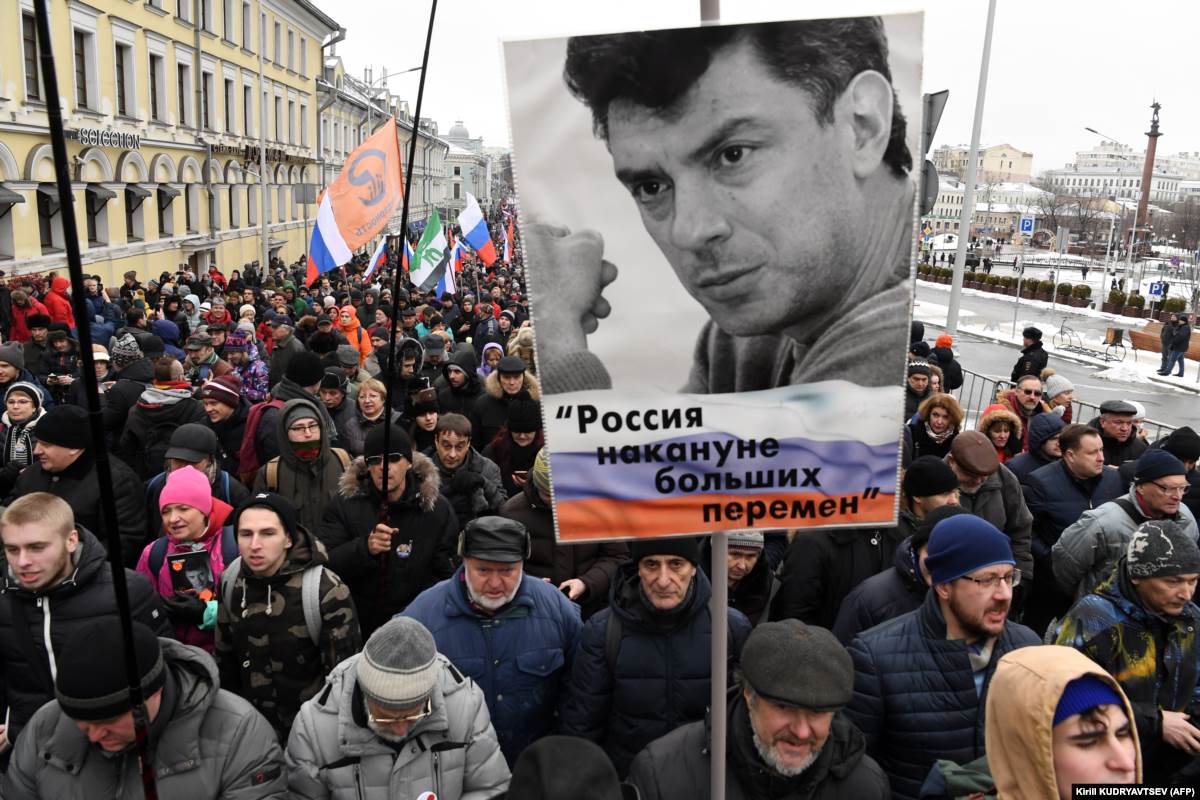
Correct. Although, yes, Khamzat Bakhayev, Zaur Dadayev, Temirlan Eskerkhanov, Anzor Gubashev, and Shadid Gubashev were sentenced for the crime in 2017, Russia did not give this reason. Instead, Moscow asserted that international investigators cannot work in Russia. It also claimed that the investigation files contain a state secret – a claim the Nemtsov family denied.

Incorrect. Presidential spokesman Dmitry Peskov did, in fact, assert that international investigators cannot work in Russia. The Russian Foreign Ministry also claimed that the investigation files contain a state secret – a claim the Nemtsov family denied. Moscow did not mention the 2017 sentencing of five men for the murder.

Incorrect. The Russian Foreign Ministry did, in fact, claim that the investigation files contain a state secret – a claim the Nemtsov family denied. Presidential spokesman Dmitry Peskov also asserted that international investigators cannot work in Russia. Moscow did not mention the 2017 sentencing of five men for the murder.
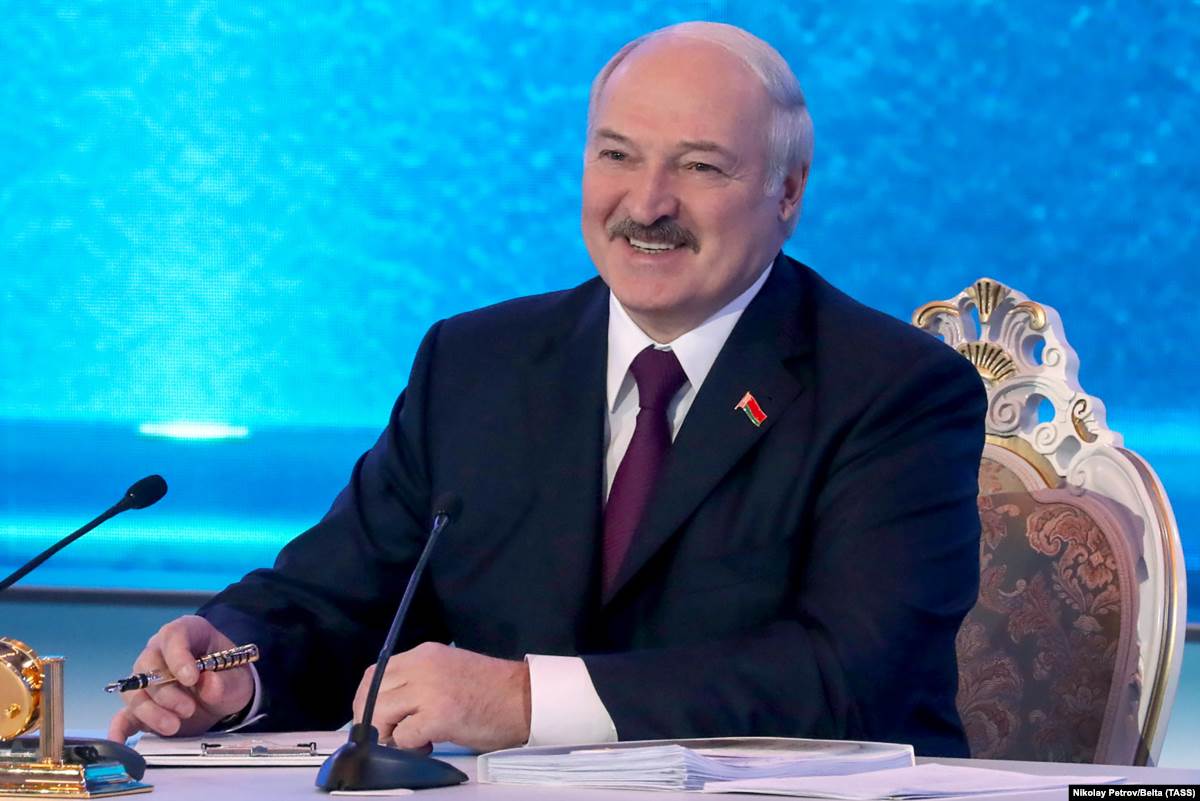
Incorrect. Then Belarusian President Alyaksandr Lukashenka made this declaration in April 2020 after asserting that Belarusians were dying from “a bouquet of diseases,” but not COVID-19. As of December 21, however, Belarus had attributed 1,308 deaths to the coronavirus.

Incorrect. Then Belarusian President Alyaksandr Lukashenka made this declaration in April 2020 after asserting that Belarusians were dying from “a bouquet of diseases,” but not COVID-19. As of December 21, however, Belarus had attributed 1,308 deaths to the coronavirus.

Correct. Then Belarusian President Alyaksandr Lukashenka made this declaration after asserting that Belarusians were dying from “a bouquet of diseases,” but not COVID-19. As of December 21, however, Belarus had attributed 1,308 deaths to the coronavirus.
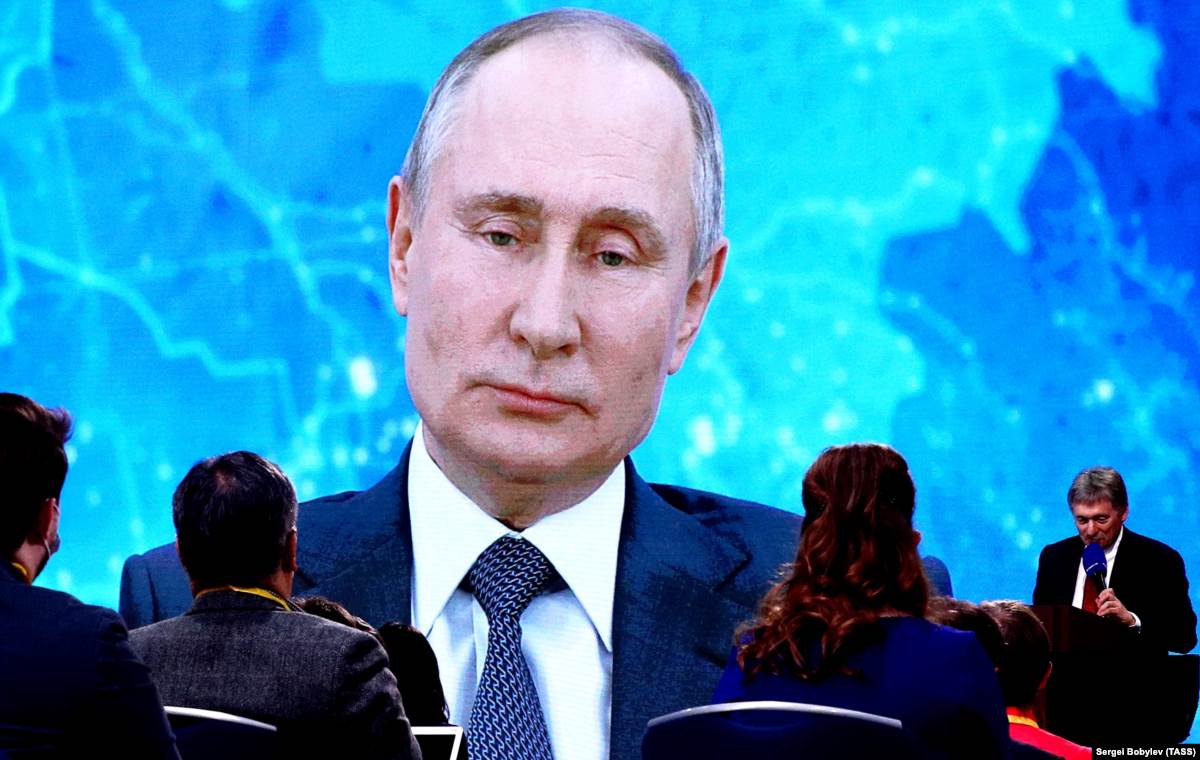
Incorrect. As of April 1, 2020, Russia’s Criminal Code authorized criminal investigations into the public dissemination of “knowingly” false information that damages others’ health or causes a death. Punishments range from a fine of 300,000 rubles (about $4,061) to a five-year prison sentence. Independent media feared that the law could be used to target critical reporting about the government’s handling of the pandemic.

Correct. Punishments range from a fine of 300,000 rubles (about $4,061) to a five-year prison sentence. Twenty-five journalists for independent outlets have charged that prosecutors and police use these regulations to pressure media that highlight problems with the government’s response to the coronavirus pandemic.

Incorrect. As of April 1, 2020, Russia’s Criminal Code authorized criminal investigations into the public dissemination of “knowingly” false information that damages others’ health or causes a death. Punishments range from a fine of 300,000 rubles (about $4,061) to a five-year prison sentence. Independent media feared that the law could be used to target critical reporting about the government’s handling of the pandemic.
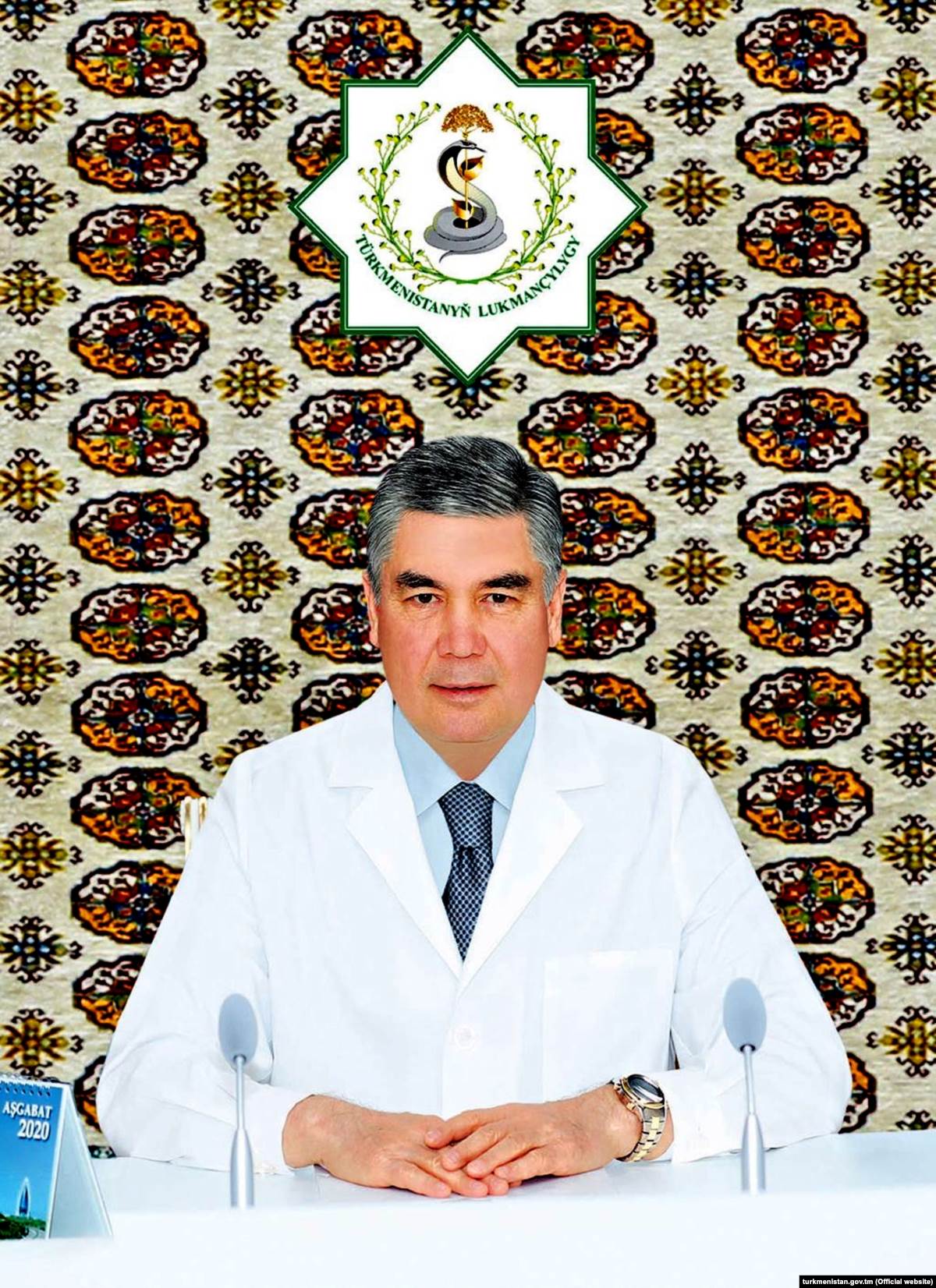
Incorrect. As of December 18, 2020, Moldova had recorded far fewer cumulative cases than its neighbors, Romania and Ukraine, but still a noticeable 133,363. Turkmenistan, however, has not acknowledged a single COVID-19 case.

Correct. President Gurbanguly Berdimuhamedow has claimed that preventative measures led to zero incidences of COVID-19, but Western human-rights researchers report repression of those who speak out about the virus.

Incorrect. As of December 18, 2020, with a tally of 75,675 cases, Uzbekistan ranked third in Central Asia (after Kazakhstan and Kyrgyzstan) for official cumulative cases of COVID-19. Turkmenistan, however, has not acknowledged a single COVID-19 case.
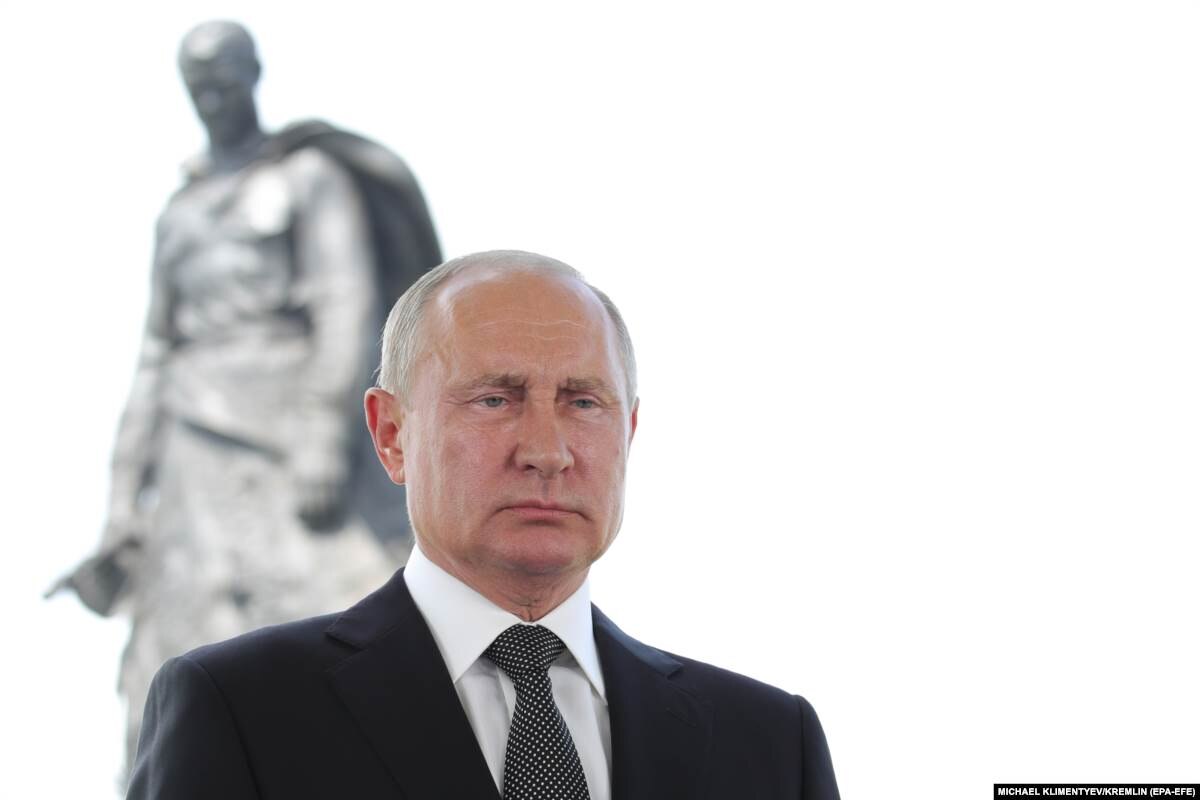
Incorrect. The changes to Russia’s constitution remove the ban on serving two presidential terms in a row. The clock was set back to zero, however, for the president in office at the time of these changes. That means that Vladimir Putin could potentially remain in office until 2036, when he’d be 84 years old.

Incorrect. The changes to Russia’s constitution remove the ban on serving two presidential terms in a row. The clock was set back to zero, however, for the president in office at the time of these changes. That means that Vladimir Putin could potentially remain in office until 2036, when he’d be 84 years old.

Correct. If Vladimir Putin stays in office until 2036, he will be 84 years old. He will have been president for 32 years.
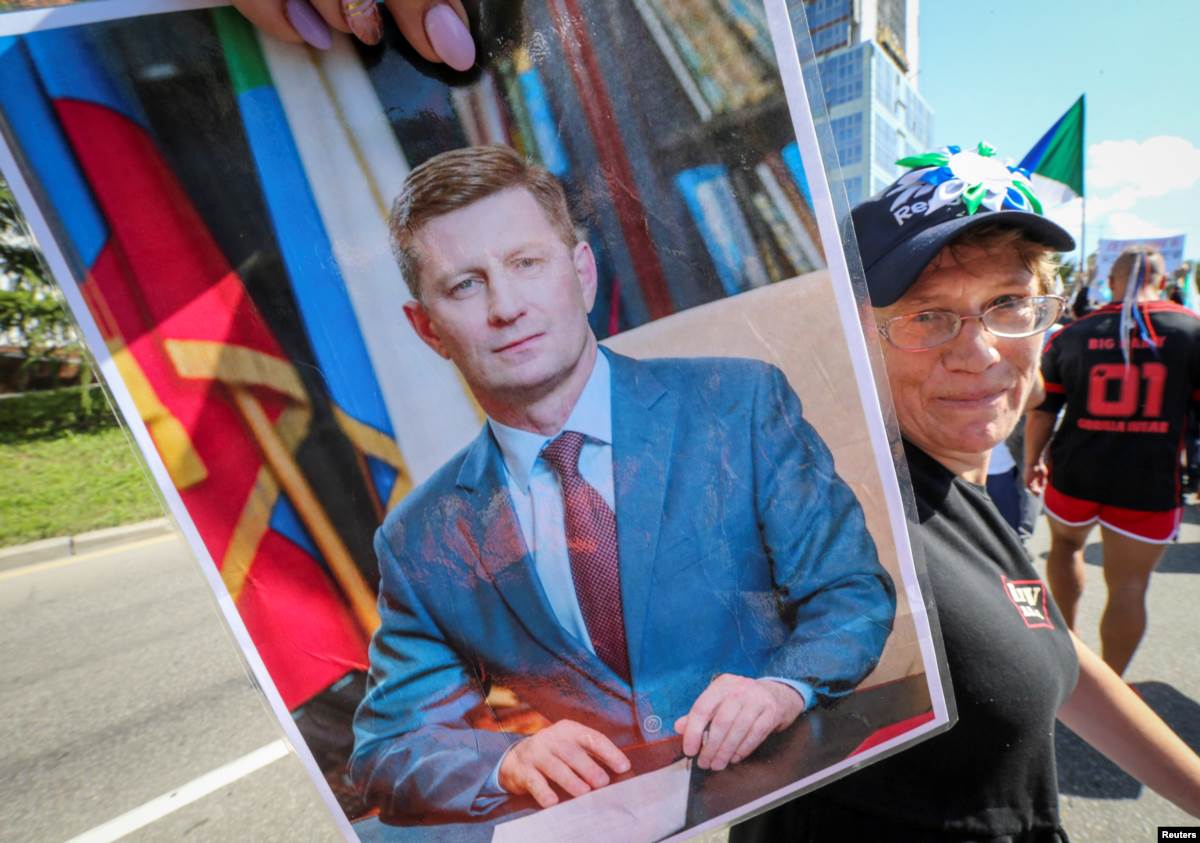
Incorrect. Furgal is a member of the nationalist Liberal Democratic Party of Russia. In 2018, he defeated Khabarovsk’s incumbent governor, Vyacheslav Shport of the ruling United Russia party, by nearly 28 percentage points. Many locals saw Furgal’s removal to Moscow as a slap in voters’ face. They have demanded his return and that his trial on charges of attempted murder and ordering a murder be held in Khabarovsk.

Correct. In 2018, Furgal, a member of the nationalist Liberal Democratic Party of Russia, defeated the incumbent governor, Vyacheslav Shport of the ruling United Russia party, by nearly 28 percentage points. Many locals saw Furgal’s removal to Moscow as a slap in voters’ face. They have demanded his return and that his trial on charges of attempted murder and ordering a murder be held in Khabarovsk.

Incorrect. Furgal is a member of the nationalist Liberal Democratic Party of Russia. In 2018, he defeated Khabarovsk’s incumbent governor, Vyacheslav Shport of the ruling United Russia party, by nearly 28 percentage points. Many locals saw Furgal’s removal to Moscow as a slap in voters’ face. They have demanded his return and that his trial on charges of attempted murder and ordering a murder be held in Khabarovsk.
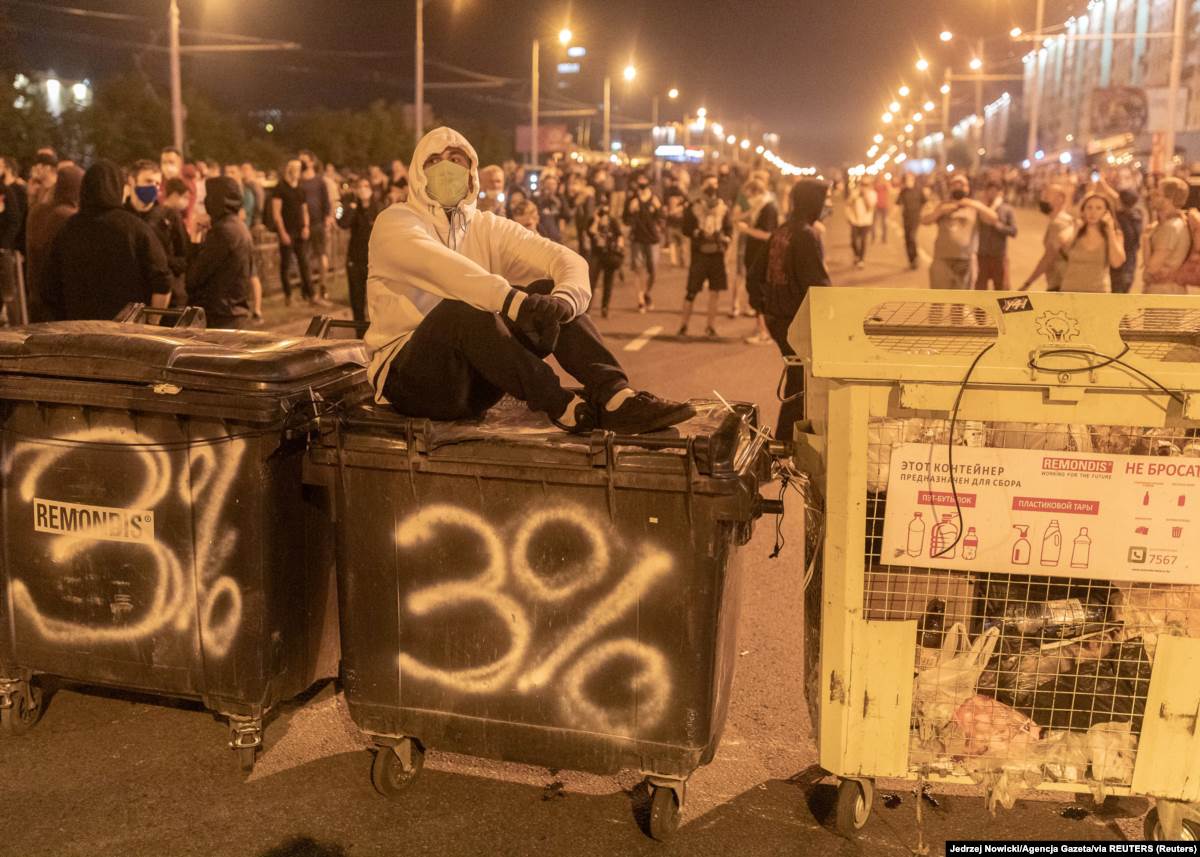
Correct. Democracy activist Dzmitryeu told reporters on July 30, 2030 that Security Council Chairman Andrey Raukou had stated at a meeting with President Lukashenka’s four challengers that the government would turn off the Internet if it sensed an online threat to the country’s security on election day. Belarus experienced an Internet shutdown or slowdown from August 9 to August 11, 2020, as protests began against the election results.

Incorrect. Though not known as an Internet enthusiast, Lukashenka did not make this remark. Democracy activist Andrey Dzmitryeu told reporters on July 30 that Security Council Chairman Andrey Raukou had stated at a meeting with President Lukashenka’s four challengers that the government would turn off the Internet if it sensed an online threat to the country’s security on election day. Belarus experienced an Internet shutdown or slowdown from August 9 to August 11, 2020, as protests began against the election results.

Incorrect. Though the Internet played a large role in bolstering her public support, Tsikhanouskaya did not make this statement. Democracy activist Andrey Dzmitryeu told reporters on July 30 that Security Council Chairman Andrey Raukou had stated at a meeting with President Lukashenka’s four challengers that the government would turn off the Internet if it sensed an online threat to the country’s security on election day. Belarus experienced an Internet shutdown or slowdown from August 9 to August 11, 2020, as protests began against the election results.
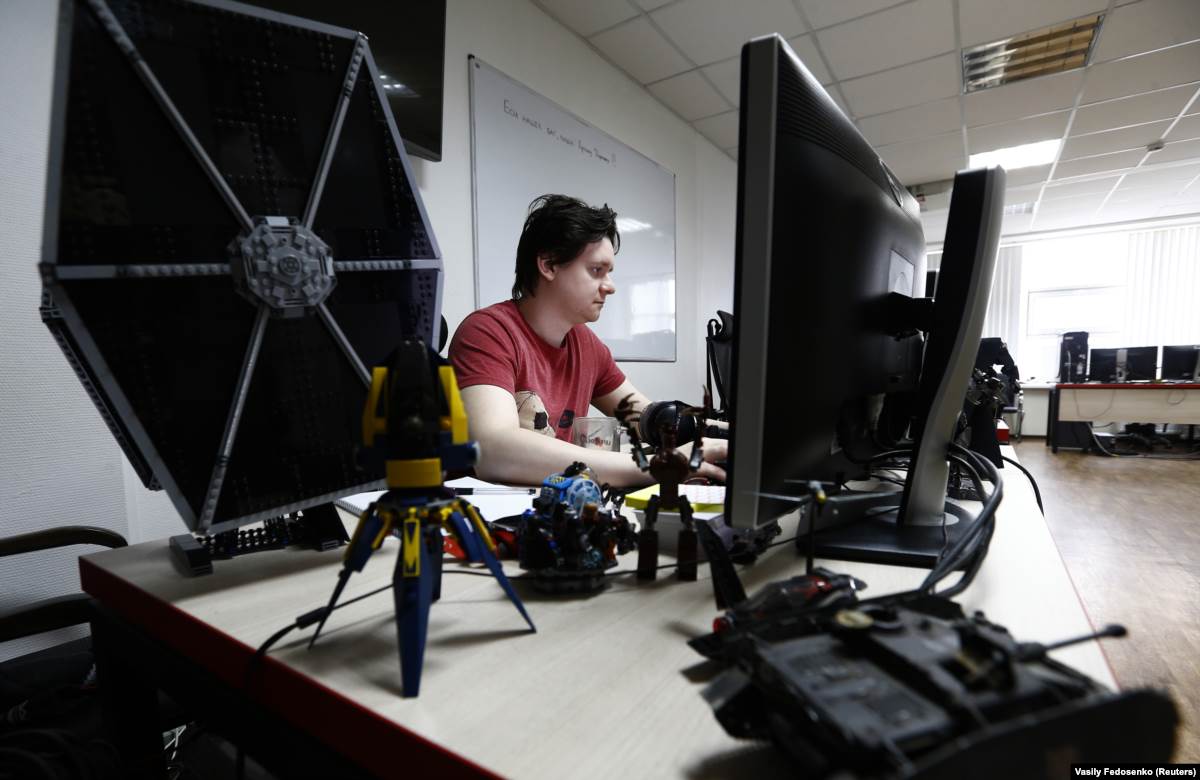
Incorrect. On August 13, 2020, police searched the Minsk offices of the Russian-owned Internet firm Yandex and the U.S. courier app Uber. The reasons were unclear. Irregular Internet service and police targeting of IT personnel prompted a mass exodus from Belarus’ once-booming IT sector after the August 2020 presidential election.

Incorrect. On August 13, 2020, police searched the Minsk offices of the Russian-owned Internet firm Yandex and the U.S. courier app Uber. The reasons were unclear. Irregular Internet service and police targeting of IT personnel prompted a mass exodus from Belarus’ once-booming IT sector after the August 2020 presidential election

Correct. The reasons for the August 13, 2020 police searches of their Minsk offices remain unclear. Yandex opted to move part of its Belarusian workforce to Russia and part into Minsk’s suburbs. Irregular Internet service and police targeting of IT personnel prompted a mass exodus from Belarus’ once-booming IT sector after the August 2020 presidential election.

Incorrect. Dead fish, crabs, and seals were found on the shores of Russia’s Kamchatka Peninsula. The amount of oil products in the water proved to be four times greater than deemed acceptable. Russia has begun a criminal investigation into the disaster.

Correct. In October 2020, Russia began a criminal investigation into the incident, but no responsible parties have been named. Russia’s Pacific Fleet has denied any responsibility for the eco-disaster.

Incorrect. Dead fish, crabs, and seals were found on the shores of Russia’s Kamchatka Peninsula. The amount of oil products in the water proved to be four times greater than deemed acceptable. Russia has begun a criminal investigation into the disaster.
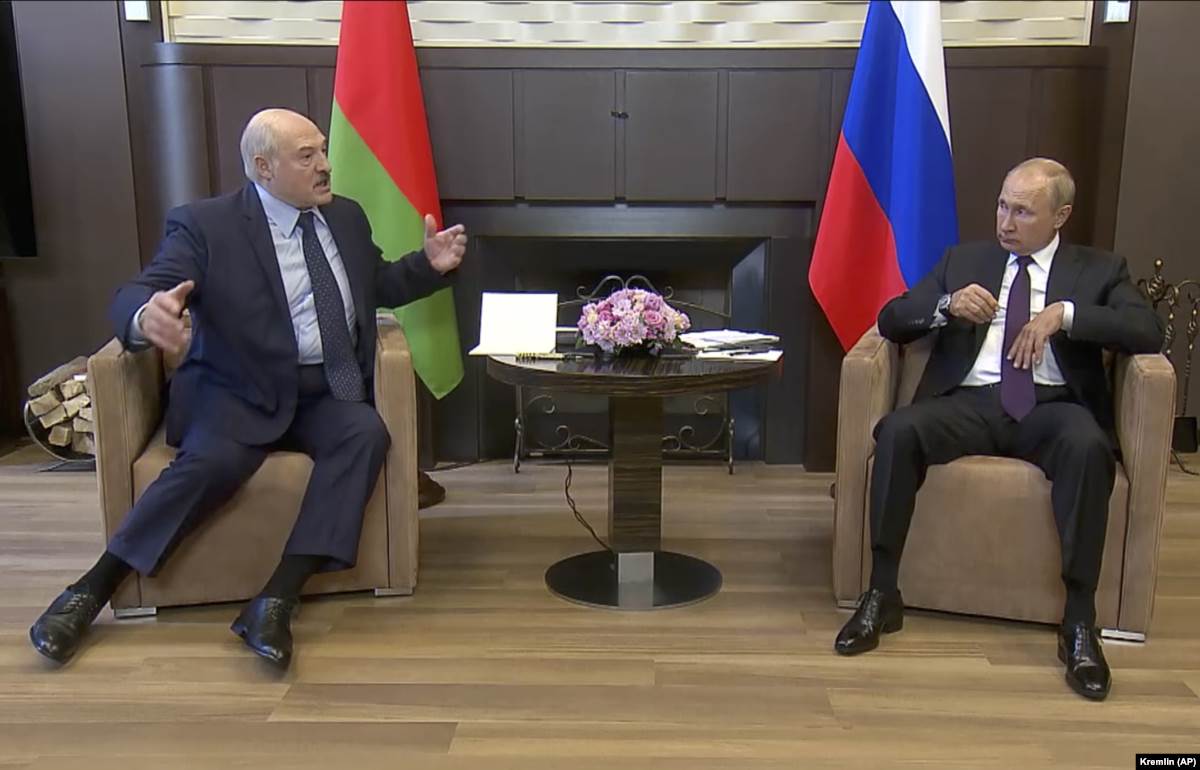
Incorrect. Russia agreed to an initial state credit of $500 million (to cover Belarus’ debts to Gazprom, in part), but pledged overall $1.5 billion in state credits by 2021. As Belarus’ largest creditor, Russia has a lot riding on its economy navigating both the COVID-19 pandemic and strikes by Belarusian businesses that sympathize with protesters against the August 2020 official presidential election results.

Correct. The aid package has been characterized as more of a refinancing of Belarus’ outstanding debts to Russia. As Belarus’ largest creditor, Russia has a lot riding on its economy navigating both the COVID-19 pandemic and strikes by Belarusian businesses that sympathize with protesters against the August 2020 official presidential election results.

Incorrect. Russia pledged to extend $1.5 billion in state credits by 2021. As Belarus’ largest creditor, Russia has a lot riding on its economy navigating both the COVID-19 pandemic and strikes by Belarusian businesses that sympathize with protesters against the August 2020 official presidential election results.
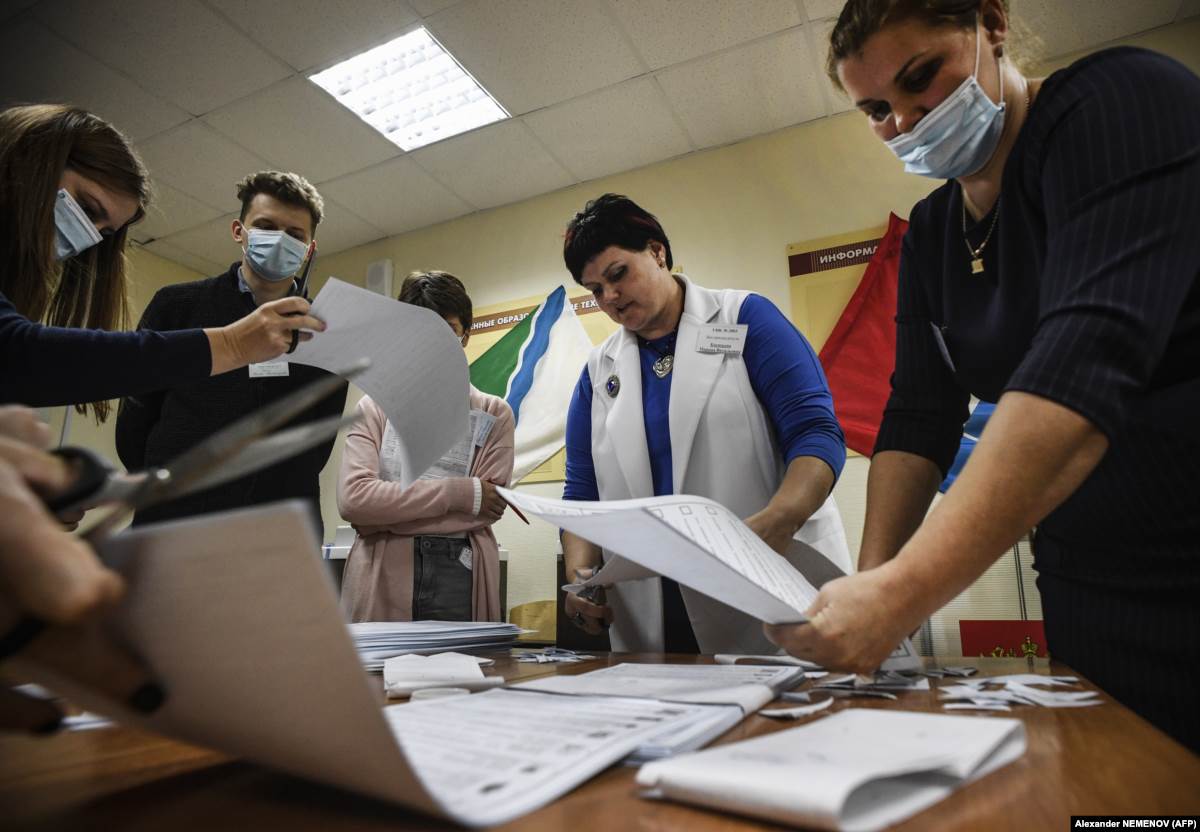
Incorrect. Five Navalny-backed candidates won city council seats in the Siberian city of Novosibirsk and two took seats in the Siberian city of Tomsk. The ruling United Russia Party lost its majorities on both councils. Navalny had visited both Novosibirsk and Tomsk before his August 20, 2020 collapse on a flight from Tomsk to Moscow.

Incorrect. Five Navalny-backed candidates won city council seats in the Siberian city of Novosibirsk and two took seats in the Siberian city of Tomsk. The ruling United Russia Party lost its majorities on both councils. Navalny had visited both Novosibirsk and Tomsk before his August 20, 2020 collapse on a flight from Tomsk to Moscow.

Correct. Navalny had visited both Novosibirsk and Tomsk before his August 20, 2020 collapse on a flight from Tomsk to Moscow. Navalny-backed candidates won five city-council seats in Novosibirsk and two in Tomsk. The ruling United Russia Party lost its majorities on both city councils.
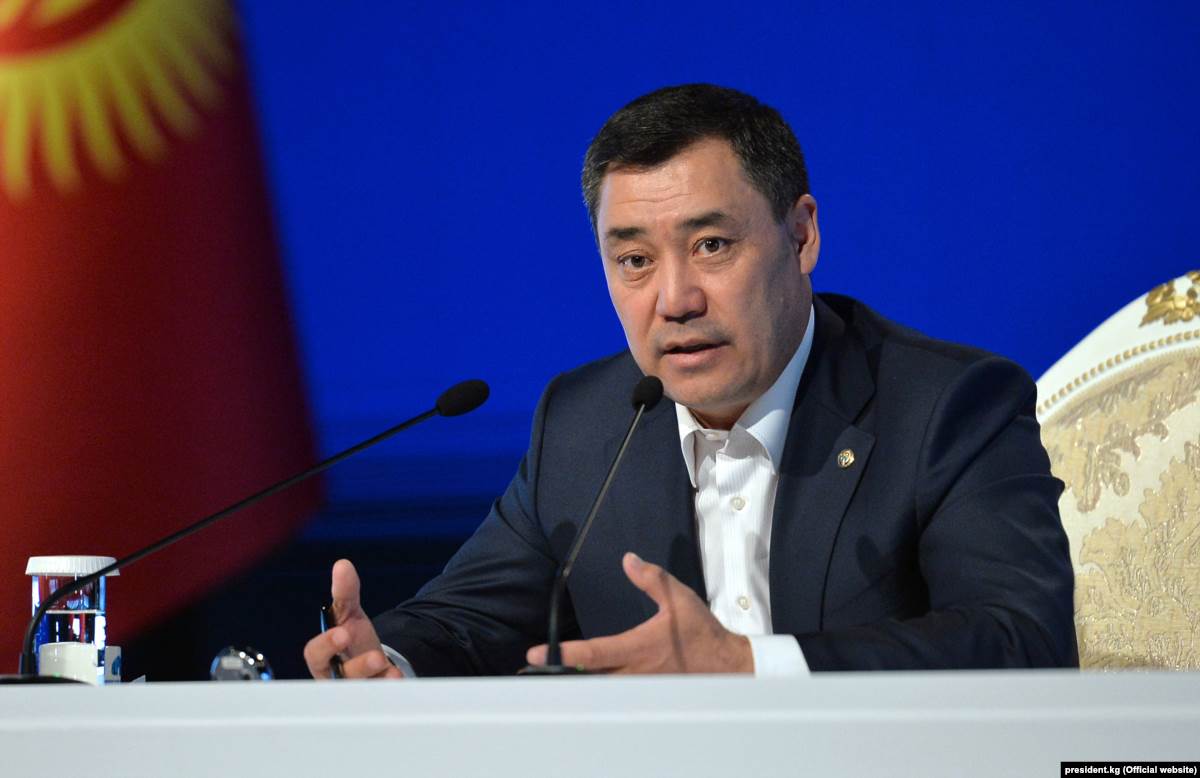
Incorrect. That accusation is against politician and former senior customs official Raimbek Matraimov, who is now under house arrest. In 2017, Japarov was sentenced to 11 ½ years in prison for allegedly kidnapping a regional governor during rallies for the nationalization of the Kumtor gold mine. Japarov, a former parliamentary deputy and anti-corruption commissioner, argued the charges were politically motivated.

Correct. Japarov was freed from jail during protests against the official results from Kyrgyzstan’s October 4, 2020 parliamentary elections. The Supreme Court annulled his sentence on October 10, 2020. Japarov, a former parliamentary deputy and anti-corruption commissioner, maintains the charges were politically motivated.

Incorrect. That was ex-President Almazbek Atambaev. In 2017, Japarov was sentenced to 11 ½ years in prison for allegedly kidnapping a regional governor during rallies for the nationalization of the Kumtor gold mine. Japarov, a former parliamentary deputy and anti-corruption commissioner, argued the charges were politically motivated.
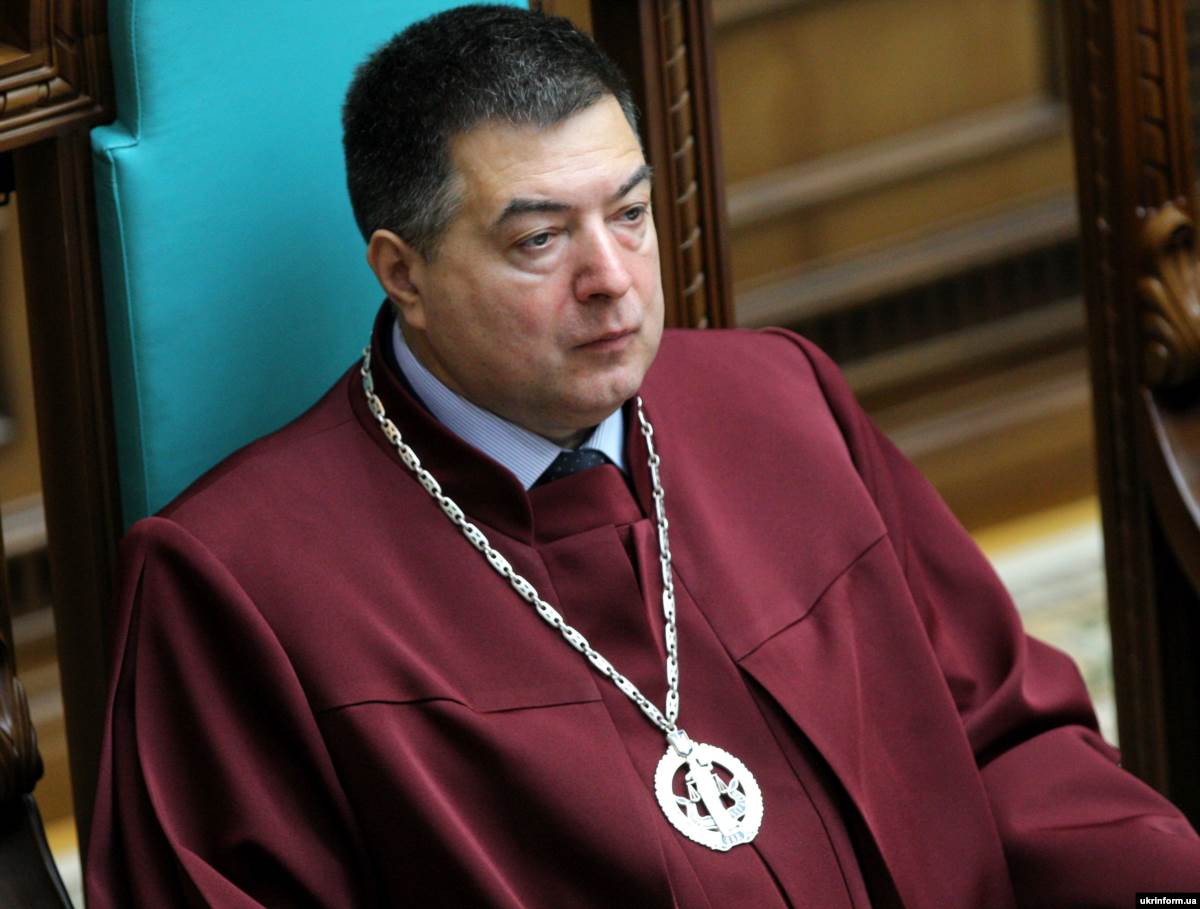
Correct. Under Ukrainian law, no property transaction has been allowed on Crimea since Russian troops took over the peninsula in 2014. The purchase, which Tupitskiy did not reveal in his annual disclosures, led to a treason investigation. However, Tupitskiy’s partner in the deal told RFE/RL’s Schemes, broadcast by Current Time, that a sale had not occurred. The transaction was simply to formalize the boundaries of their neighboring land plots, the man alleged.

Incorrect. The deal occurred in Crimea. Under Ukrainian law, no property transaction has been allowed there since Russian troops took over the peninsula in 2014. The purchase, which Tupitskiy did not reveal in his annual disclosures, led to a treason investigation. However, Tupitskiy’s partner in the deal told RFE/RL’s Schemes, broadcast by Current Time, that a sale had not occurred. The transaction was simply to formalize the boundaries of their neighboring land plots, the man alleged.

Incorrect. The deal occurred in Crimea. Under Ukrainian law, no property transaction has been allowed there since Russian troops took over the peninsula in 2014. The purchase, which Tupitskiy did not reveal in his annual disclosures, led to a treason investigation. However, Tupitskiy’s partner in the deal told RFE/RL’s Schemes, broadcast by Current Time, that a sale had not occurred. The transaction was simply to formalize the boundaries of their neighboring land plots, the man alleged.
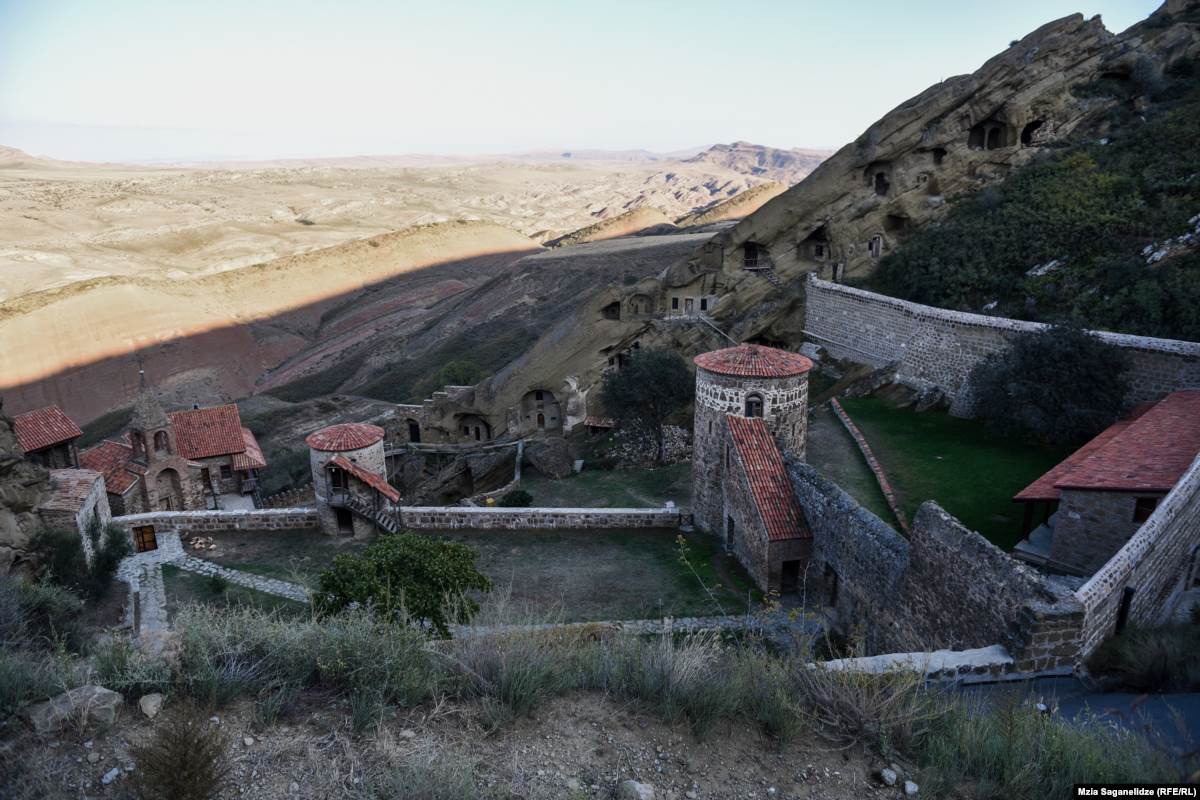
Incorrect. The investigation targets border discussions with Azerbaijan under Saakashvili that allegedly would have resulted in Georgia losing part of the 6th-century Davit Gareji monastery complex to Azerbaijan.

Correct. Azerbaijan and Georgia have no formal border treaty, and both countries claim parts of the 6th-century monastery complex. Former President Saakashvili has denied any wrongdoing in his administration’s border discussions with Baku.

Incorrect. The investigation targets border discussions with Azerbaijan under Saakashvili that allegedly would have resulted in Georgia losing part of the 6th-century Davit Gareji monastery complex to Azerbaijan.
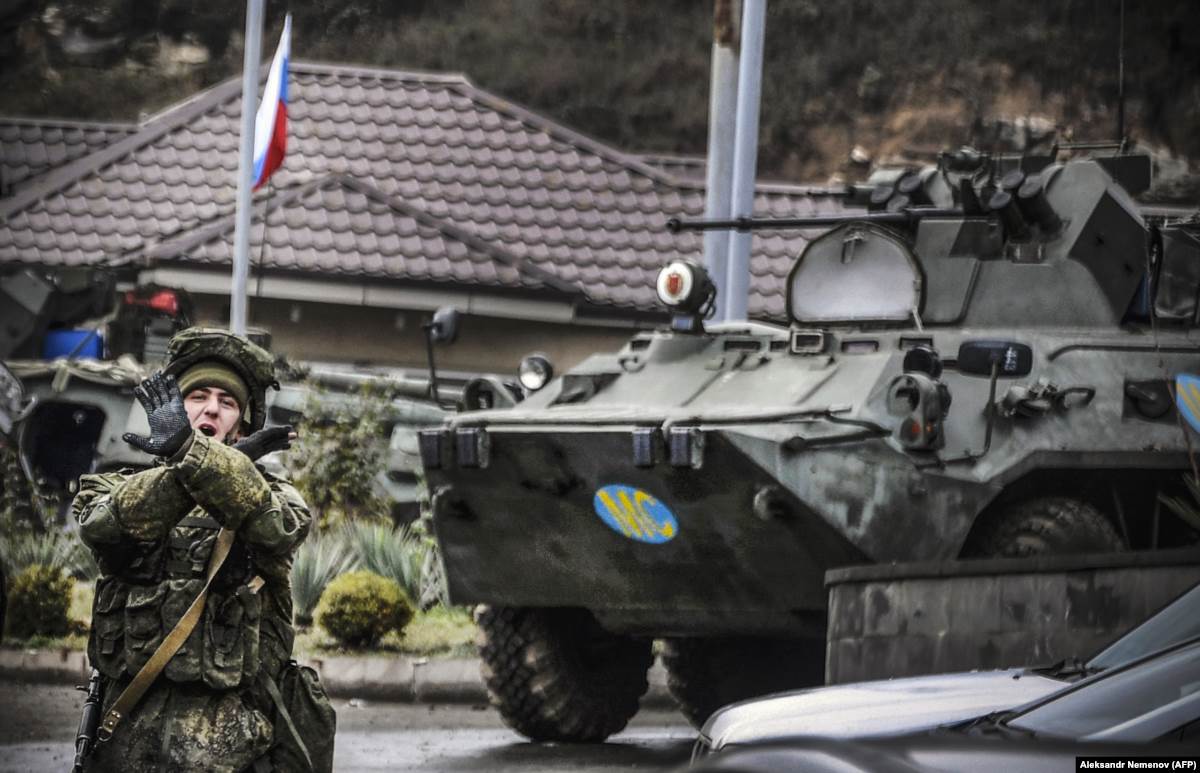
Correct. The peacekeepers, who are full-time army soldiers, can be asked to leave with six months’ notice. Nagorno-Karabakh was formerly the only territorial conflict in the South Caucasus in which Russia had no on-the-ground presence.

Incorrect. The truce allows for 2,000 Russian peacekeepers to be stationed in Nagorno-Karabakh and the Lachin Corridor for five years. The peacekeepers, who are full-time army soldiers, can be asked to leave with six months’ notice. Nagorno-Karabakh was formerly the only territorial conflict in the South Caucasus in which Russia had no on-the-ground presence.

Incorrect. The truce allows for 2,000 Russian peacekeepers to be stationed in Nagorno-Karabakh and the Lachin Corridor for five years. The peacekeepers, who are full-time army soldiers, can be asked to leave with six months’ notice. Nagorno-Karabakh was formerly the only territorial conflict in the South Caucasus in which Russia had no on-the-ground presence.
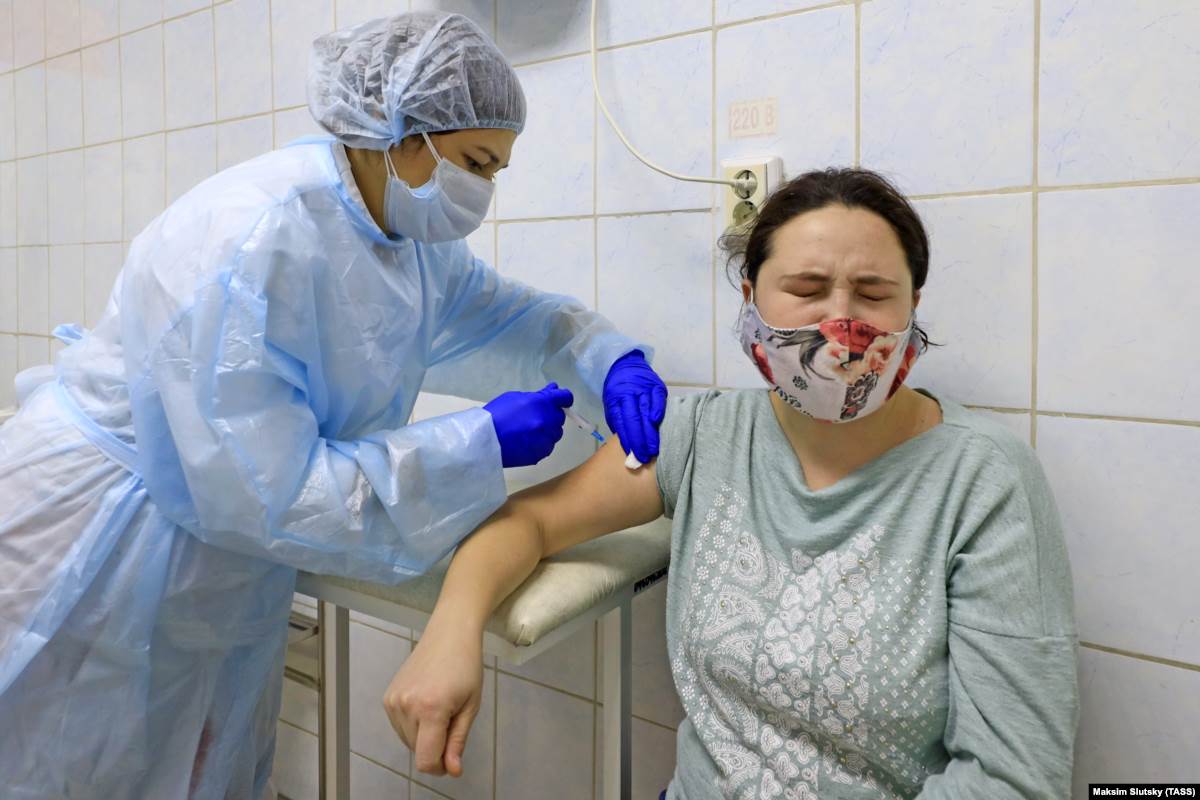
Incorrect. Covaxin is a vaccine developed by India’s Bharat Biotech company. Russia’s next expected vaccine, already registered, is EpiVacCorona. Developed by the Vector State Research Center of Virology and Biotechnology, was concluding its final trials in December 2020.

Incorrect. CoronaVac is a vaccine developed by China’s Sinovac company. Russia’s next expected vaccine, already registered, is EpiVacCorona. Developed by the Vector State Research Center of Virology and Biotechnology, was concluding its final trials in December 2020.

Correct. Already registered, EpiVacCorona, developed by the Vector State Research Center of Virology and Biotechnology, was concluding its final trials in December 2020.
